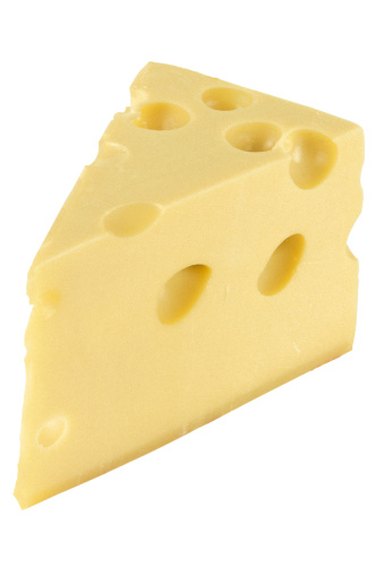
According to the Environmental Protection Agency, the United States is one of the top cheese producers in the world. In 1995, the United States produced more than 9 billion pounds of cheese. The majority of this cheese was natural, while some of it was classified as processed. While both types are considered cheeses, there are also several differences.
Ingredients
Video of the Day
The main ingredient in all cheeses is milk. However, a natural cheese is made directly from the milk, while a processed cheese is not. A processed cheese is actually a collaboration of several types of natural cheese blended together to form a new kind of cheese. Other ingredients may also be used to create processed cheeses. Therefore, a processed cheese is not made directly from milk, though milk is still its primary ingredient. Without the creation of natural cheeses, processed cheeses would not exist.
Video of the Day
Natural Cheese Process
To create a natural cheese, the milk is homogenized to preserve the fat content and pasteurized to remove harmful bacteria. The cheesemaker then adds a harmless bacteria to the milk to help separate out the curd from the liquid. The curd is cut into pieces and cooked. The size of the pieces varies depending on the type of cheese. Excess liquid is removed from the curds after they have been cooked and then they are salted and pressed to form a block or wheel of cheese. The cheese then remains in a cool location to age until it is ready to eat.
Processed Cheese Process
Processed cheese begins with the same process as the natural cheeses. However, it requires more steps. Two or more kinds of cheese are selected to create the new flavor. Emulsifiers and salt are added to the blend and the cheeses are stripped of their rinds and cleaned. They are then melted together to create the new processed cheese. To prevent the cheese from molding, it is packed in a machine that contains no oxygen.
Flavors
The flavors of each cheese is very different depending on variations in the process, such as moisture content and length of ripening. Even the same type of cheese made by different companies can have a slightly different taste. Having the processed cheeses in addition to the natural cheeses gives an even larger variety of flavors to choose from. However, the number of natural cheese flavors far outnumber the number the processed cheese flavors.
Shelf Life
The shelf life of various cheeses is different depending on the type of cheese. For the most part, a natural cheese will spoil more quickly than a processed cheese. Part of the reason for this is that the processed cheese is packaged in an oxygen-free environment, which eliminates the risk of mold. Processed cheeses also often contain more preservatives, including salt, which keeps them from spoiling as quickly. In addition to the longer shelf life, processed cheeses also melt smoothly and maintain texture and flavor when heated.